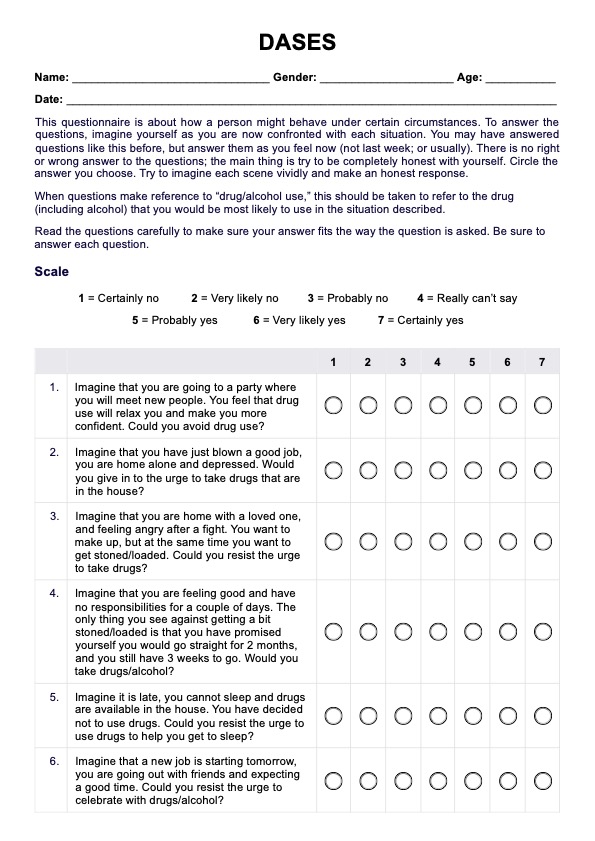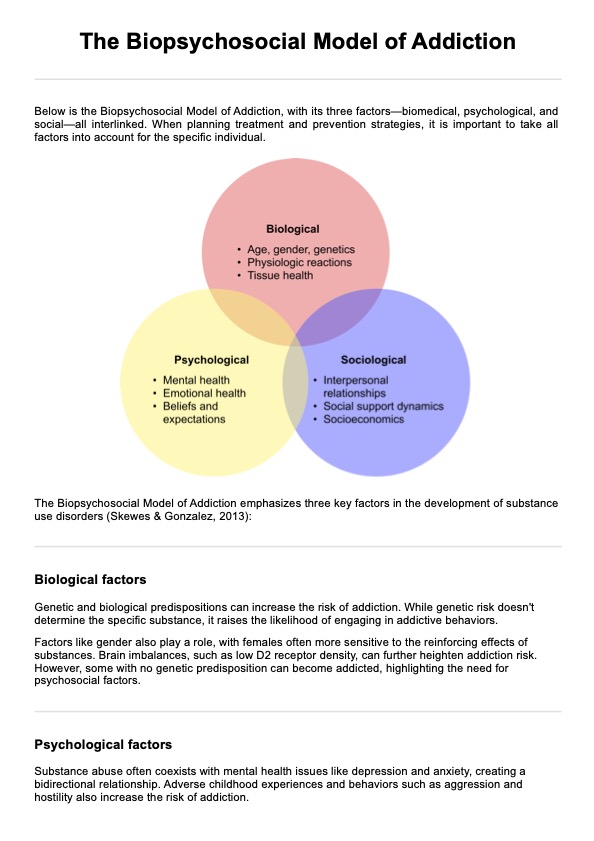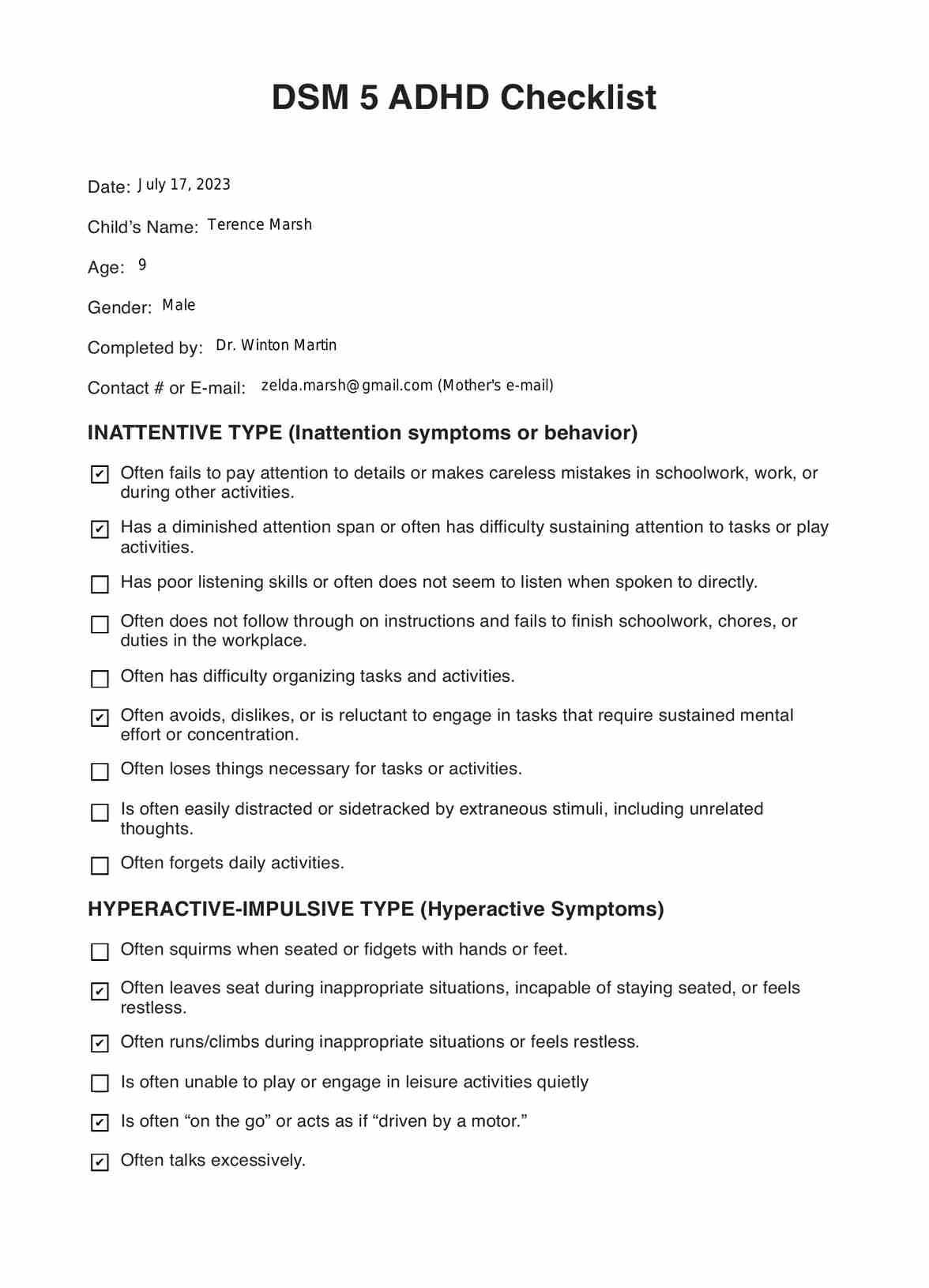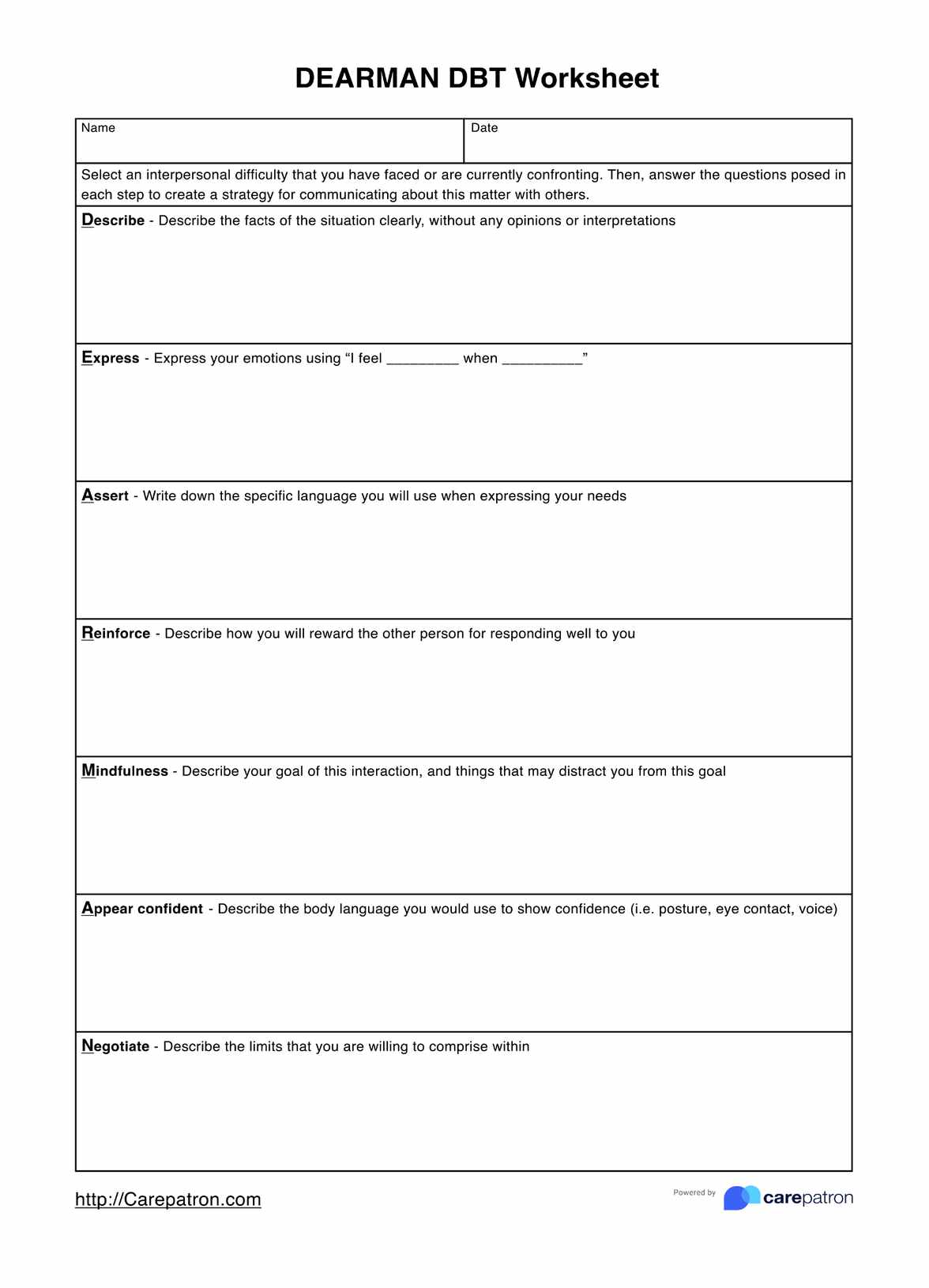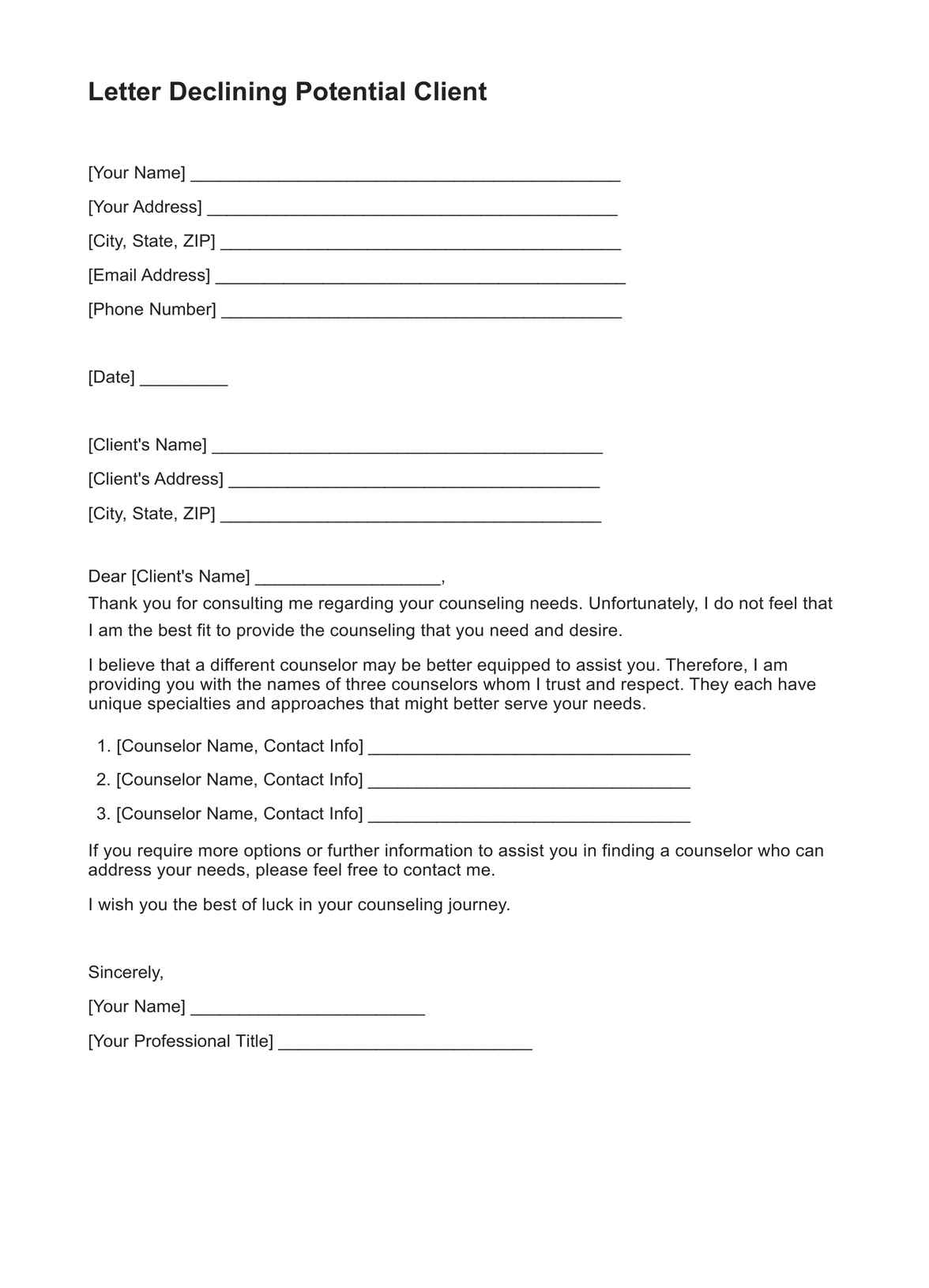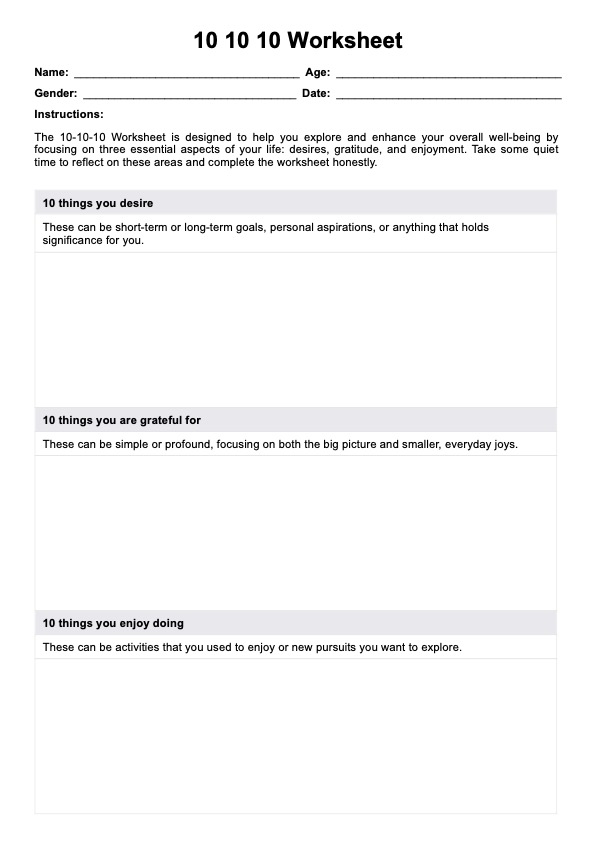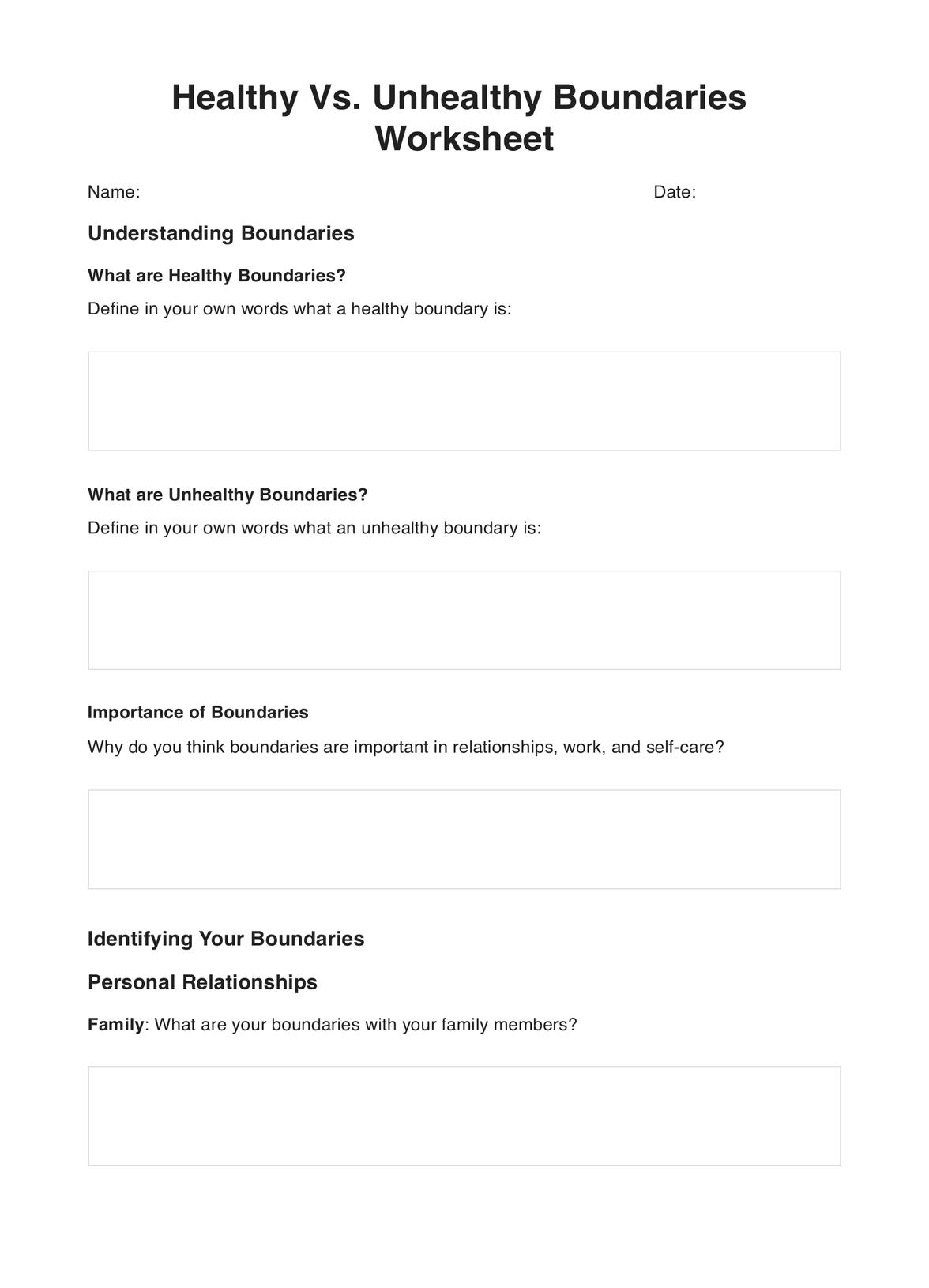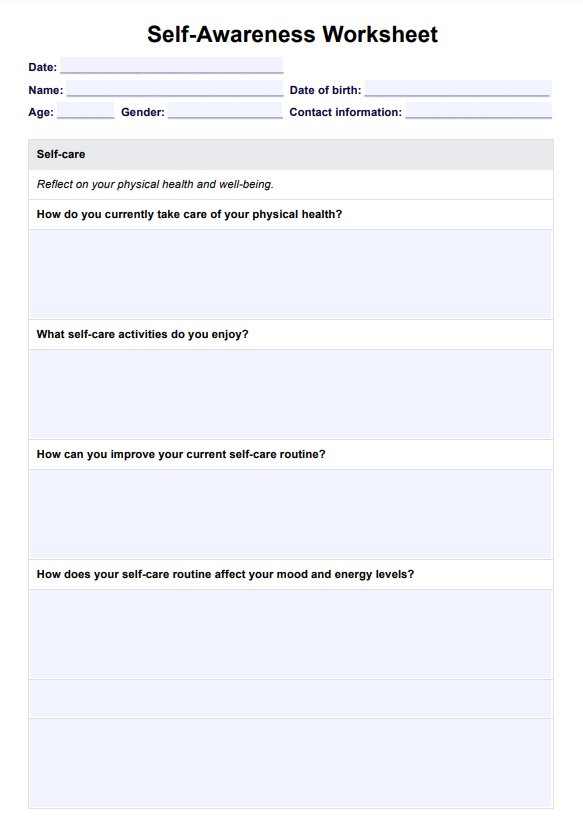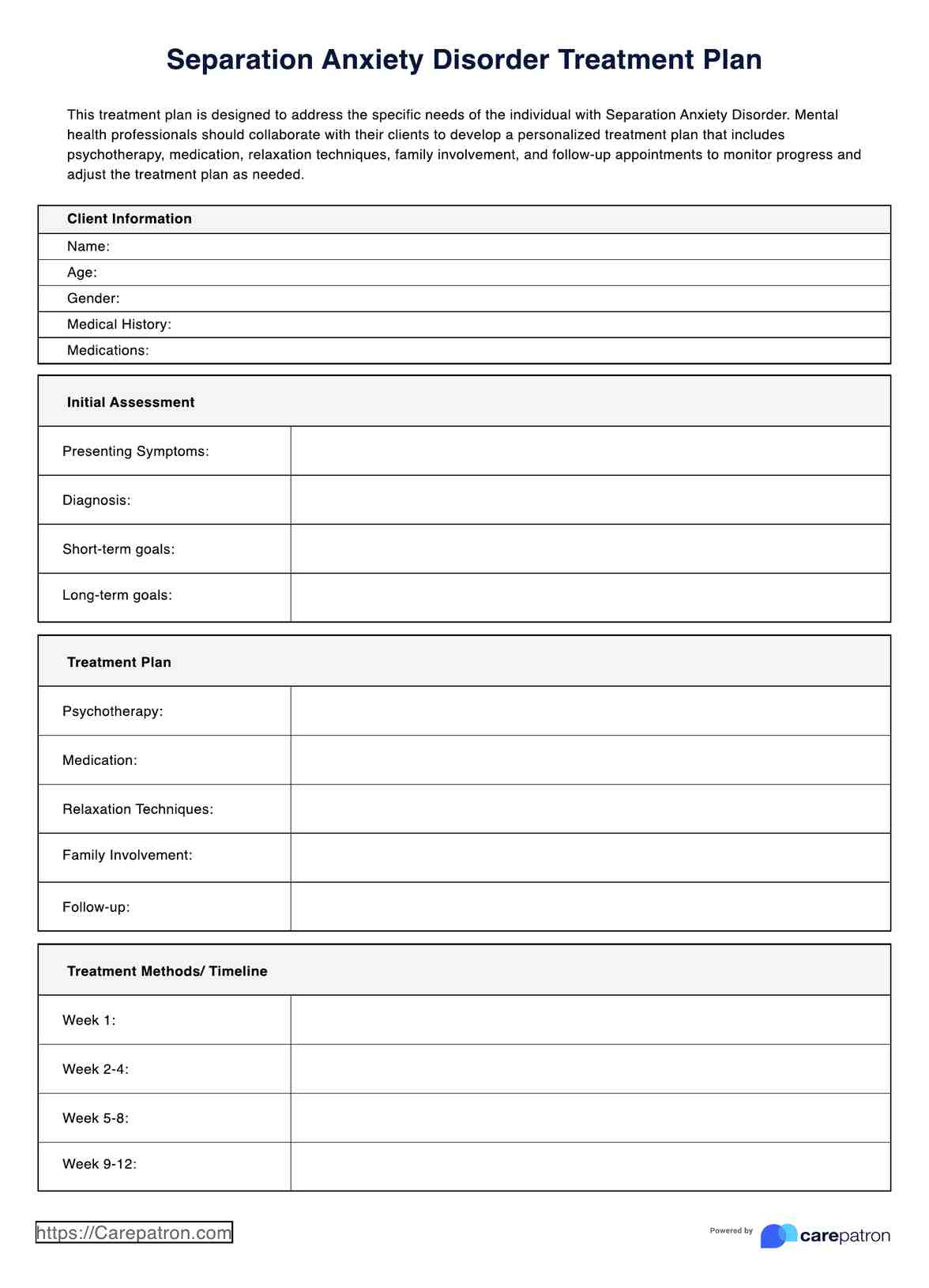Alcohol Arguments CBT Worksheets
Get access to a free Alcohol Arguments CBT Worksheet. Use our template to help clients understand alcohol-related arguments and learn coping techniques.


What is an Alcohol Arguments CBT Worksheet?
Cognitive Behavioral Therapy (CBT) is an evidence-based therapeutic approach that explores thoughts, beliefs, and behaviors to help individuals better manage their emotions and reactions.
CBT can effectively address alcohol-related arguments and conflicts, helping individuals identify and challenge irrational thoughts and behaviors that contribute to disputes related to alcohol consumption. By understanding these patterns and working to modify them, individuals can learn coping skills to reduce the frequency and intensity of alcohol-related arguments.
Therapists can utilize an to help individuals recognize their thought patterns and behaviors associated with alcohol arguments, question the accuracy of these patterns, and develop alternative responses. This worksheet can be used during therapy sessions or assigned as homework for clients to practice outside sessions.
CBT is a powerful tool for managing alcohol-related conflicts. With the help of an Alcohol Arguments CBT Worksheet, individuals can gain insight into their arguments and develop constructive coping strategies.
Alcohol Arguments CBT Worksheets Template
Alcohol Arguments CBT Worksheets Example
How does it work?
Our free printable Alcohol Arguments CBT Worksheet is specifically designed to address alcohol-related arguments within the context of Cognitive Behavioral Therapy. Here's how to use the worksheet:
Step One: Access the worksheet
You can access the Alcohol Arguments CBT Worksheet using the provided link on this page or the Carepatron app. It is also readily available in our extensive resources library.
Step Two: Introduce and discuss the worksheet with your client
Take the time to explain the purpose of the worksheet and the various aspects it covers. Emphasize the importance of recognizing and understanding patterns of alcohol-related arguments and discuss the significance of employing cognitive-behavioral strategies to address these issues.
Step Three: Client completes the worksheet
Guide your client through filling out the Alcohol Arguments CBT Worksheet template. Encourage them to reflect on their triggers for alcohol-related arguments, thought patterns, and behavioral responses.
Step Four: Review their answers
Review the Alcohol Arguments CBT Worksheet with your client and discuss any emerging difficulties or recurring patterns related to alcohol arguments. This review process will help them identify triggers for conflicts and reveal potential opportunities for growth and improvement.
When would you use this free Alcohol Arguments CBT Worksheet?
You can use our free Alcohol Arguments CBT Worksheet template during counseling sessions with clients dealing with alcohol-related conflicts. This worksheet offers a comprehensive approach to understanding and addressing triggers, thought patterns, and behavioral responses related to alcohol arguments. Additionally, you can utilize this worksheet to:
Educate your clients on the dynamics of alcohol-related conflicts
You can use the Alcohol Arguments CBT Worksheet to explain the different components of alcohol-related arguments to your clients and help them recognize how these elements interplay. This will help them become more aware of their triggers for discussions.
Analyze triggers for alcohol-related disputes
By examining the various aspects of alcohol-related conflicts in our Alcohol Arguments CBT Worksheet, you can help your clients explore potential triggers for their disputes related to alcohol consumption. It allows them to understand how their environment, thoughts, and behavioral patterns contribute to these conflicts.
Develop constructive ways to address alcohol-related arguments
You can use our free worksheet to help clients uncover potential coping strategies for dealing with alcohol-related conflicts. With the help of this worksheet, they can begin to identify healthier ways to respond to arguments related to alcohol consumption.
Encourage self-reflection and personal growth
The Alcohol Arguments CBT Worksheet can be used to encourage clients to deepen their understanding of how their thoughts and behaviors contribute to alcohol-related conflicts. As they work through the worksheet, your clients can reflect on each aspect of these disputes from a mindful perspective.
Benefits of free Alcohol Arguments CBT Worksheet template
Here are some of the advantages of our Alcohol Arguments CBT Worksheet:
It's fully digital and easy to customize
The Alcohol Arguments CBT Worksheet is entirely digital, so you and your client can access it anytime and anywhere. You can modify the template's prompts and layout to better fit your client's needs and goals.
It's extremely versatile
Our free template suits individual and group therapy sessions, making it a versatile tool for various therapeutic settings. Additionally, you can utilize it for self-reflection exercises, and clients can use it as a valuable resource to refer back to whenever needed.
It helps track progress
The Alcohol Arguments CBT Worksheet lets you monitor your client's progress. It also allows clients to track their progress, providing them with a sense of accomplishment and motivation to keep working on their issues related to alcohol arguments.
It's an effective cognitive tool
Our worksheet is designed to help your clients identify their thought patterns and behaviors related to alcohol arguments to develop healthier responses. It encourages self-reflection and personal growth, allowing clients to gain more insight into these conflicts and how they affect their lives.
Commonly asked questions
Mental health professionals, especially therapists, can use an Alcohol Arguments CBT Worksheet to help their clients learn better ways of responding to alcohol-related conflicts.
The Alcohol Arguments CBT Worksheet can be used during individual or group therapy sessions and self-reflection exercises.
The Alcohol Arguments CBT Worksheet is designed to identify thought patterns and behaviors related to alcohol arguments to help clients develop healthier responses. It encourages self-reflection and personal growth, allowing clients to gain insight into these conflicts and how they affect their lives.


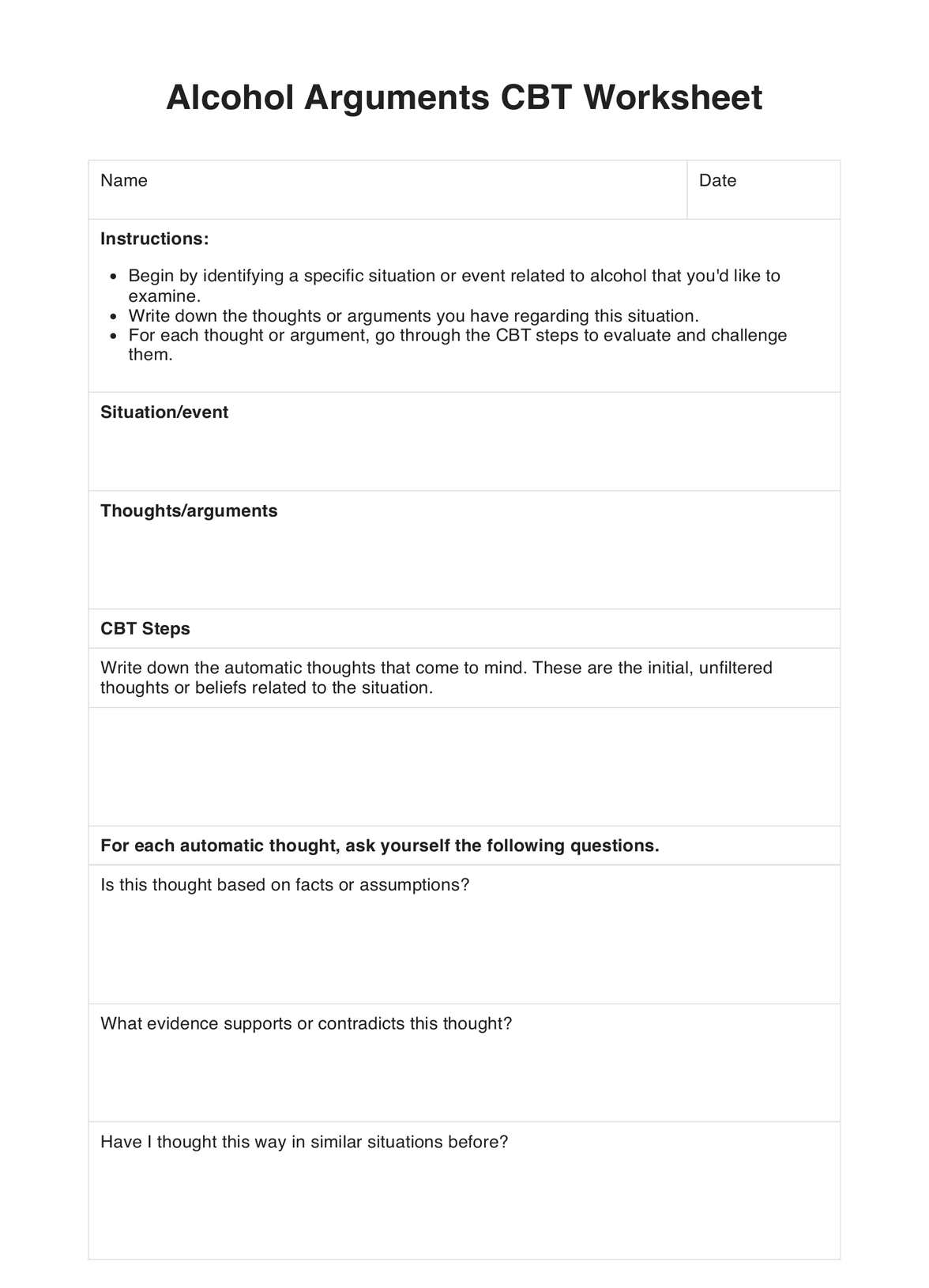
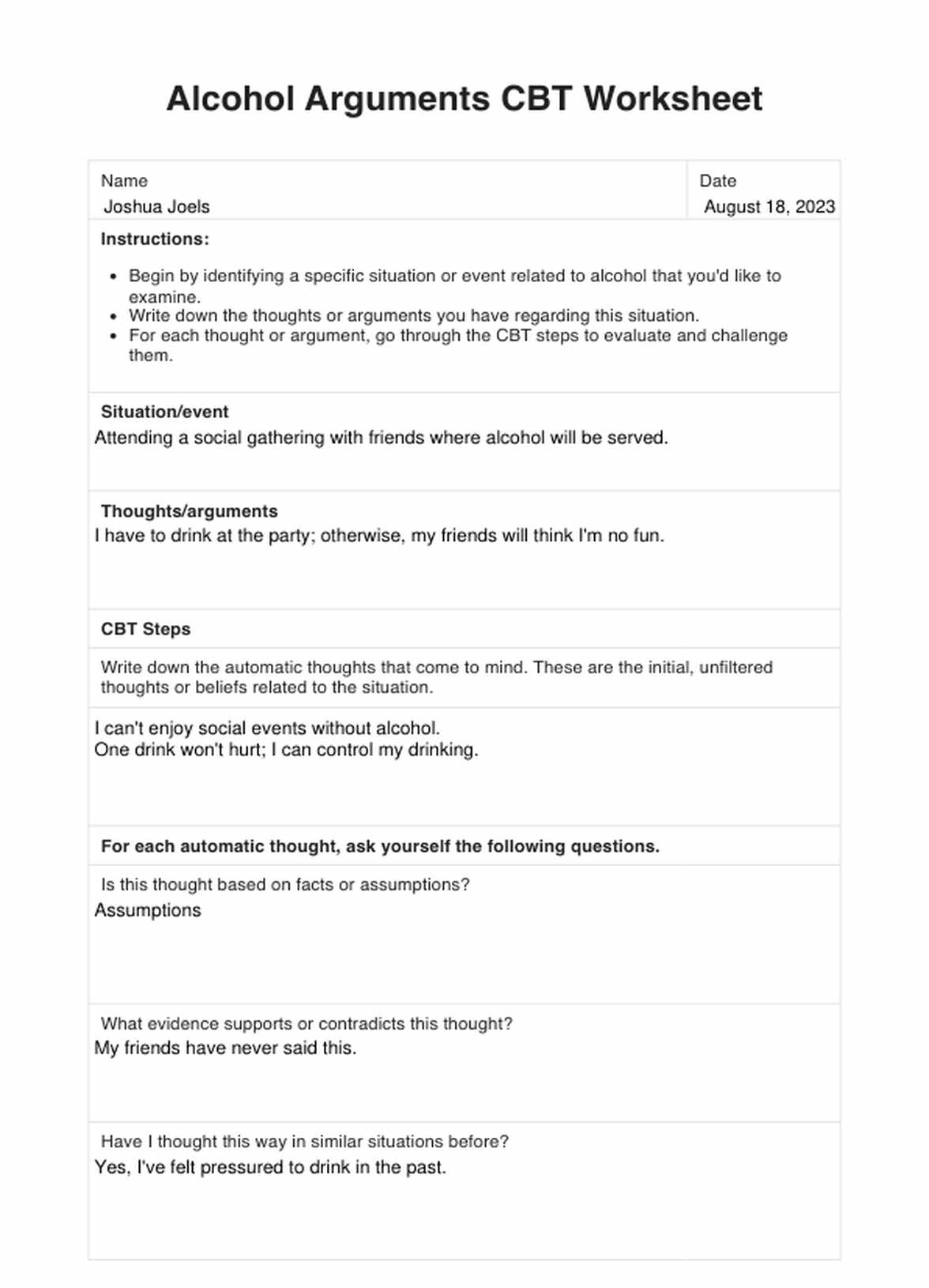














-template.jpg)


